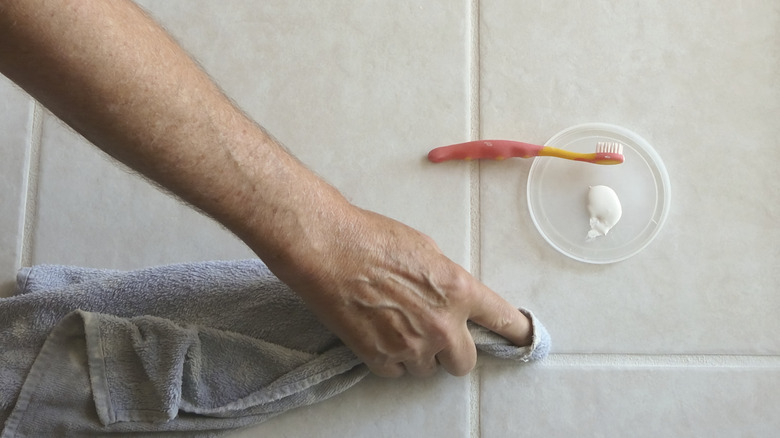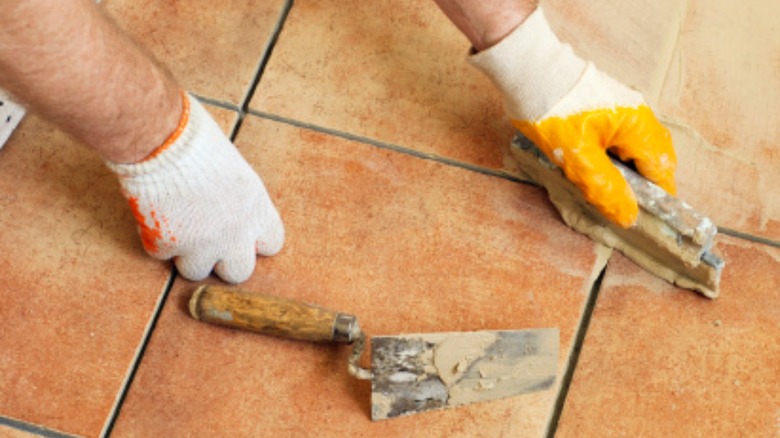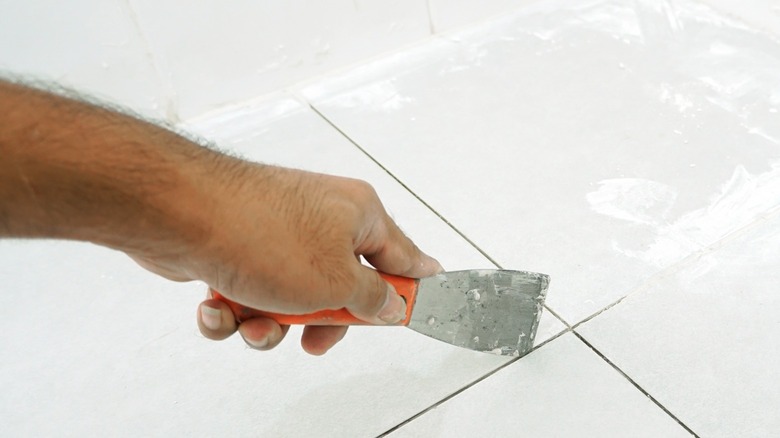How To Choose The Right Grout Sealer For Your Tile
We may receive a commission on purchases made from links.
So – you're finally getting your tile done, or perhaps you've recently moved into your dream house with beautiful tile floors in the kitchen or bathrooms. One thing you may have heard before is how important it is to seal your grout, but it's likely you have no clue what the right kind of grout sealer is. The fact is, it's not as difficult as it might seem. There are basically just two main types of grout sealer: penetrating and non-penetrating. We're going to cover the pros and cons of each type so you can make a better-informed decision.
Another natural question might be whether all grout needs to be sealed. The answer is that it's not required, but it is recommended for optimal results and extended lifespan of your tile. The more porous the grout is, the more it could use a good sealer. Grout, in general, is porous in nature and, therefore, vulnerable to moisture and staining in particular. When tile is placed in areas of high moisture in the house, a grout sealer goes a long way toward maximizing its performance. Sealing the grout helps it to become resistant to water, stains, and chemicals like those found in cleaning products. Best of all? You can seal grout yourself to save some cash.
All about penetrating grout sealer
Grout will actually absorb penetrating grout sealer, adding long-term protection from water, mildew, and oils. It's also referred to as an "impregnating sealer" and will last for three to five years before needing to be resealed. This type of sealer is typically applied with a brush directly to the grout lines. There's basically one major drawback: It's painstaking, backbreaking, knee-challenging work! Also, beware of solvent-based sealers, as they require taking precautions with protective gear against those nasty VOCs (volatile organic compounds).
When looking for a product, ensure it's compatible with the type of tile you have and that it offers a natural-looking finish. Penetrating sealers also come in colors that can hide stains and restore the finish you desire for your grout. You should always use two coats of any product. There are many well-reviewed brands of penetrating grout on the market, such as Aqua-Mix Sealer's Choice Gold, a water-based product that offers a natural finish. It runs about $40 on Amazon. You should be able to find an option that is safe for natural stone, porcelain, and most tile surfaces.
All about non-penetrating grout sealer
A non-penetrating grout sealer is another option for homeowners who don't mind doing the job more often, as long as it's not the backbreaking chore that penetrating sealers are. Non-penetrating sealers spray on, and you can spray both tiles and grout. However, this type of sealer needs to be reapplied every one to two years, and it's not advised for glazed tiles due to problems with adhesion. It's really more of a surface coating, but it's still far better than nothing at all.
Non-penetrating spray-on grout sealers are a great choice for unglazed tiles and natural stone. They can safely be used in kitchens but should probably be avoided in bathrooms where moisture is highest. One option is Miracle Sealants 511 Spray-On Grout Sealer, a quick-drying option found on Amazon for around $15. When using spray-on sealers, take care to avoid accidentally spraying neighboring surfaces.
Whichever type you choose, hopefully, this information will help you make a more educated decision when it comes to choosing the right grout sealer for your tile.


